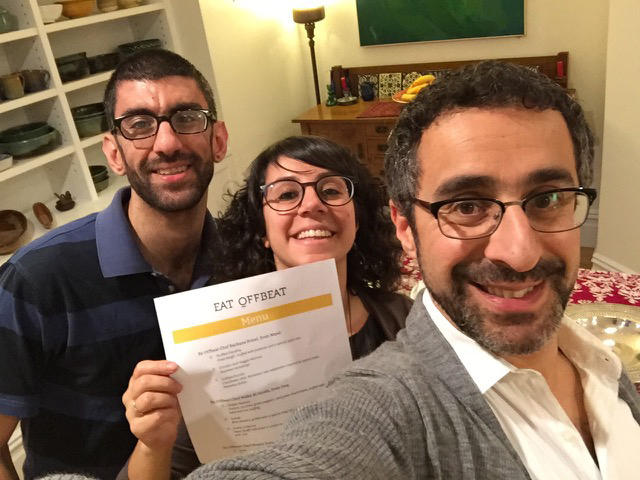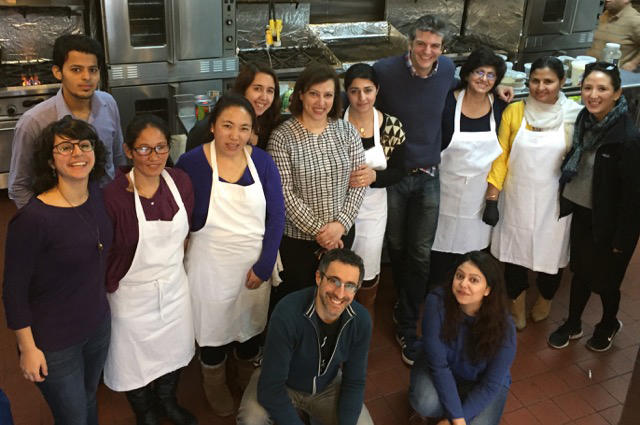For Manal Kahi ’15SIPA, it all began with hummus. Or, rather, the lack thereof.
Kahi, a Lebanese environmental consultant and the cofounder of Eat Offbeat, a catering company that employs refugees as cooks, says that three years ago, when she moved to New York to start a master’s program at Columbia, she couldn’t find good hummus — at least none as authentic as the stuff her Syrian grandmother used to make.
So Kahi borrowed the family recipe and started to make big batches, sharing it with family and friends. It was such a hit that her entrepreneurial brother Wissam Kahi ’04BUS quickly decided that it was good enough to sell.
“At first it was just going to be a hummus company,” Manal Kahi says. “But this was 2013, the beginning of the Syrian refugee crisis in Lebanon. We wanted to figure out a way to help from New York. ”
Then it dawned on the Kahi siblings that they could have Syrian refugees make the hummus. “The idea got bigger from there,” Manal Kahi says. “Syrians aren’t the only refugees resettling in the United States. And they all have native dishes that are so much better when they’re homemade rather than mass-produced.”
With the help of the International Rescue Committee, the Kahis began to identify and recruit refugees who are also excellent home cooks. The chefs — from Nepal, Iraq, Eritrea, and Syria — work with Eat Offbeat chief culinary officer Juan Suarez de Lezo to adapt their recipes for a professional kitchen.
Based in Long Island City, Queens, Eat Offbeat caters a wide variety of events, from private dinner parties and small office lunches to much larger functions, such as corporate retreats.
“It’s really a win-win-win,” Manal Kahi says. “These are people who desperately need jobs, and that’s at the forefront of our mission. But we’re also able to introduce people to new, exciting dishes. And we’re helping to change the narrative around refugees. They shouldn’t be seen as a potential burden but as a rich cultural asset.”




